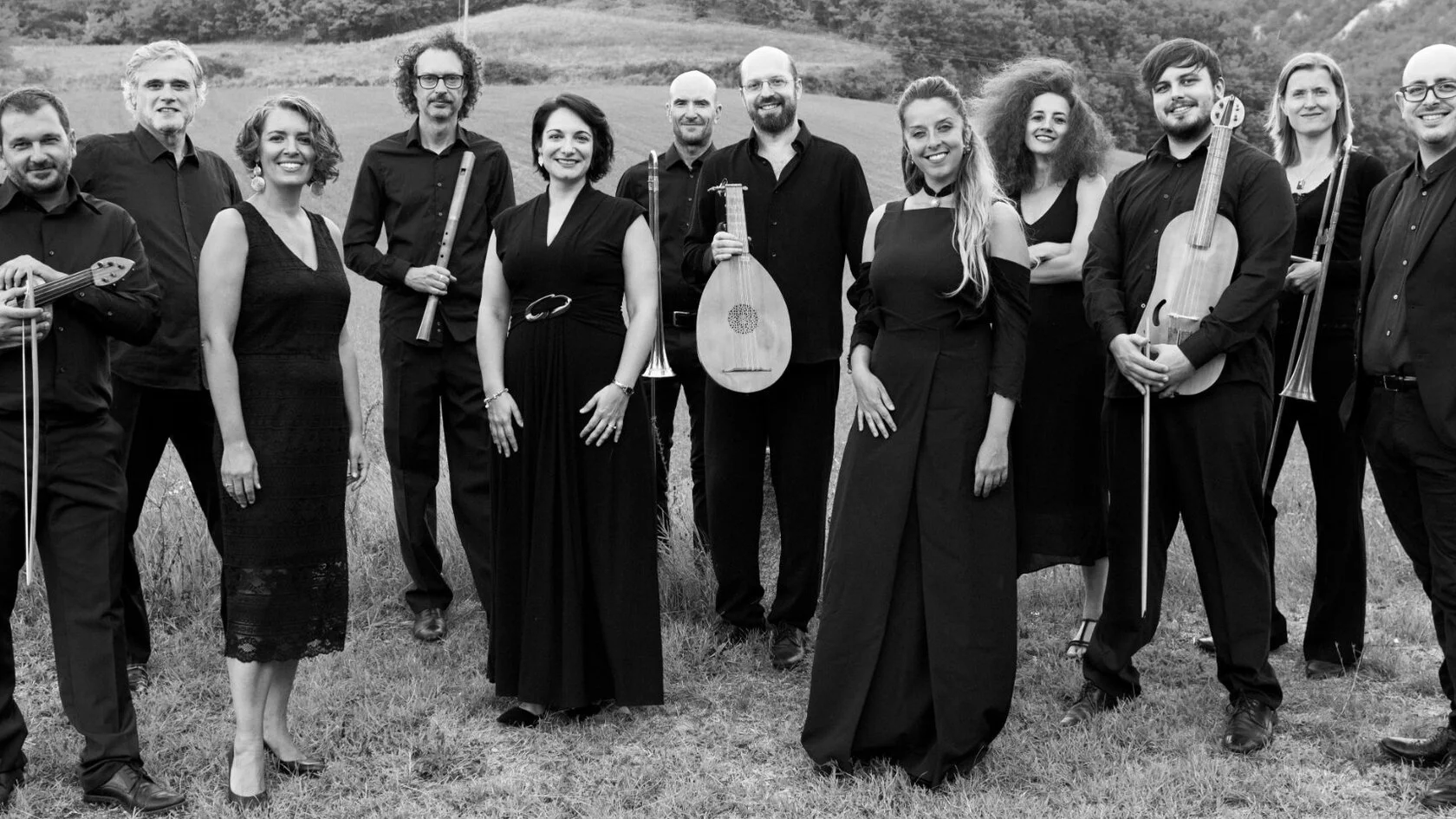La Fonte Musica goes to hell and back in a concert inspired by Dante's Commedia, at Early Music Vancouver
The pandemic sent Italian lute virtuoso Michele Pasotti looking back at the poets of the Black Plague—and the way Ars Nova music provided relief
La Fonte Musica lute virtuoso Michele Pasotti.
Early Music Vancouver presents DanteNova: Music from Dante’s Commedia at Christ Church Cathedral on October 25 at 7:30 pm, with a prechat at 6:15 pm with Michele Pasotti
DURING THE WORST of the COVID-19 epidemic, did your thoughts immediately turn to the great plagues of the past? If so, you’re not alone. But few have made such good use of their fears as lute virtuoso Michele Pasotti, the leader of Italy’s remarkable early-music ensemble La Fonte Musica.
Like musicians all over the world, Pasotti found himself suddenly unemployed during lockdown as venues emptied and schools closed, and in his case existential worries eventually led to the creative breakthrough we’ll hear when Early Music Vancouver presents DanteNova: Music from Dante’s Commedia on October 25.
“During the first lockdown, I thought ‘What am I going to do with my time?’’’ Pasotti recalls in a Zoom interview from his home near Milan. “There were no concerts, no nothing, and being in Italy was particularly strict. So I wanted to go more deeply into the century that witnessed the worst pestilence of all time, the Black Death. And also to learn from them. How did they react to these catastrophes? This was of course much, much, much worse compared to what we had in ’20, ’21. In Europe, one third of the population died. In Florence, half of the population died. So I went back to [Giovanni] Boccaccio, of course, who wrote The Decameron, which starts with a description of the plague and a very nice reaction to that.”
Once on that path, Pasotti naturally progressed to Boccaccio’s near-contemporary, Dante Alighieri, and although he had dipped into Dante’s masterful Commedia as a teenager, what he found on his second and closer reading proved shocking.
“While I was reading it, I realized how many times music is evoked in the poem,” he explains. “It was astonishing. So I started to write down every passage where he speaks about music, and I found it very, very significant.
“The most important thing I found, I think, is that in his poem music is always associated with relief and with something that tempers the hardness of life,” he continues. “Not in a weak sense—for us, nowadays, it can be a little bit too sugar-like, you know. But the way Dante thinks about the sweetness of music has nothing to do with too much sugar. He is a man with a very strong awareness of what is a very hard life. All his life he wanted to be a good poet, but also a good politician for his city—and eventually he was banned from his city. So all the sense of his life, he lost. His love is dead, and he’s in a situation where he knows how life can be hard, and music, for him, is always something that lifts you up in a very noble way, in a very high way. So it was very touching to read this during the pandemic.”
A concert based on Dante’s musical allusions naturally seemed to align with La Fonte Musica’s focus on the sounds of the 14th and early-15th centuries. The ensemble’s recordings have explored the court music of Milan during that time, and also include a four-CD collection of the Italian composer and papal secretary Antonio Zacara da Teramo’s complete works.
“This is really following the journey Dante makes,” Pasotti confirms. “For example, in Hell there is no music at all. There can be no music. And then in the Purgatorio you have a perfect balance of, let’s say, courtly love and sacred love—a perfect balance between the two. And in Paradiso you only have this mystical dimension. For example, Dante cannot describe Mary when he sees her in Paradise—but music does, so he describes the music that angels make while Mary is appearing.
La Fonte Musica.
“You have many passages which are really amazing,” he continues. “For example, maybe the most touching moment is when music appears for the first time, which is at the very beginning of Purgatorio, on the beach at the foot of the Mount of Purgatory. It’s still dark; he just came out of Hell. He sees stars and then, first thing, he hears somebody singing a Gregorian chant, In exitu Isräel de Aegypto. It’s a transition chant….So these souls are passing when they are dead, and they come to the beach at the foot of the mount they will have to climb in their journey of expiation.”
With material that inevitably progresses towards the heavenliest of harmonies, DanteNova will assuredly offer balm for even the most anxious of modern souls. On a more scholarly level, though, it’s also a brilliant introduction to the cultural phenomenon known as Ars Nova, and to its associated composers, including Guillaume de Machaut, Paolo da Firenze, and Matteo da Perugia.
Pasotti cautions that Ars Nova is a 20th-century term for a 14th-century phenomenon, invented by a German musicologist to encompass the extraordinary flourishing of art, music, and poetry that took place between 1310 and 1420, more or less. In music, he explains, it coincided with a new method of notation that allowed compositional ideas to spread more widely and more rapidly than before; in visual art, new discoveries in perspective and pigment manufacturing resulted in a similar outburst of creativity.
“It’s the same explosion of colours,” he notes. “There were colours everywhere.”
That these colours have endured is immediately obvious on seeing the art of the time. Fourteenth-century music’s connection to the present day is perhaps less immediately apparent, but Pasotti cites its physicality and modal nature as giving it a fundamentally contemporary feel. And when looking specifically at the Commedia, there are other parallels to be made. Dante’s damned souls are making a nautical voyage out of despair and into salvation; cannot the same be said of today’s displaced migrants?
“Yeah, definitely,” Pasotti concurs. “The thing that medieval music teaches us is that human experience and human journeys are more or less always the same. And when they are told in music or in poetry or in sculpture or painting, at a very, very high level, they will continue to speak to us. It’s like these artists went so deep into the human experience that their works can resonate for a very long time.” ![]()


























